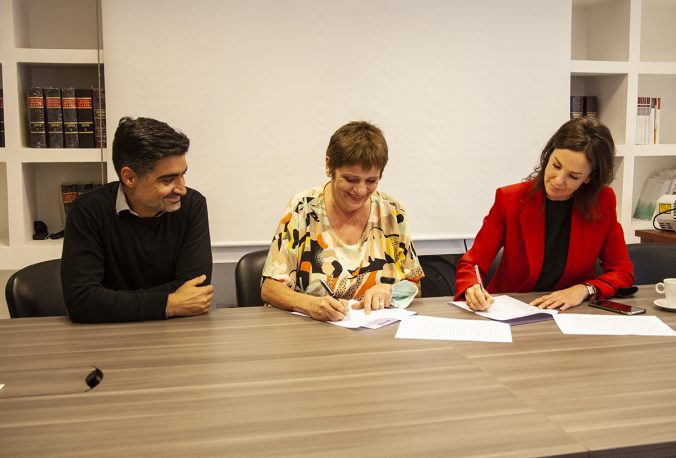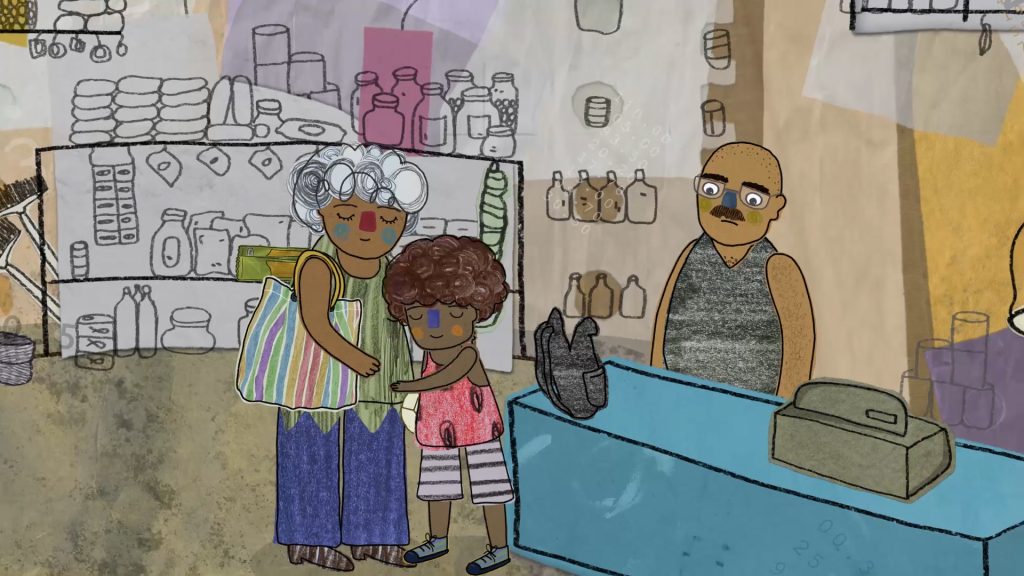
An agreement was recently signed between ACIFAD, CWS and the Public Prosecutor’s Office of the City of Buenos Aires (Argentina) to ensure the guarantees of children and adolescents who have adult references deprived of liberty (NNAPES ) in legal and judicial proceedings involving their relatives.
In 2016, during the production of the documentary Desinvisibilizar, one of the protagonists commented after finishing the interview: “I share my story with you, but I hope this helps something happen.”
That sentence resonated with those who heard it and it became, like many other things that children and adolescents who have adult deprived of liberty (NNAPES) have said, into an “objective to follow”. , that something happens….
Today, years later, and thanks to the work carried out jointly with ACIFAD in local and national spaces, it could be said that “something happened” or is beginning to happen.
Since CWS began to support and lead actions to generate knowledge, visibility and influence on children and adolescents who have adult references deprived of liberty together with ACIFAD and the rest of the organizations that make up the NNAPES Platform , one of the main objectives was to get the issue incorporated into the agenda of decision makers and those in charge of protecting and ensuring the rights of children and adolescents in general.
The signing of the agreement between ACIFAD, CWS and the Public Prosecutor’s Office of the City of Buenos Aires (Argentina), on March 21, is a great step in this search, since the Public Prosecutor’s Office (MPT) has as its mission “the control of legality of procedures, promotion of access to justice and respect, protection, promotion and satisfaction of the rights and guarantees of girls, boys and adolescents (NNA) and people who require support for their mental health “of the City from Buenos Aires.

Until now, the MPT focused mainly on protecting the rights of children and adolescents who were victims, witnesses or those who came into conflict with the law. Now, this organization also included the issue “NNAPES” as an axis on its agenda. Before, these cases were dealt with, but only in particular situations in which someone referred them to the agency.
In this process, the support of Dr. Noris Pignata, Tutelary Adviser before the Chamber of Appeals for Criminal, Juvenile Criminal, Misdemeanor and Offenses of the MPT, was crucial. She helped make this happen with the conviction that: “If a State makes a legitimate decision, but that causes damage to third parties who are not those directly involved, the State must take all precautions or precautions so that this impact, in this case, in the children of the people who are deprived of their liberty, be the smallest possible…”
In relation to what it means for the MPT to take the issue as a strategic axis, she commented: “This means that all MPT consultancies are going to have to have a general criterion of action in all these cases and in all instances.” Then he added: “This criterion may have steps to follow, such as: identifying the children, understanding the situations, making proposals in the process, articulating actions with other non-judicial agencies of the State (from the City of Buenos Aires) so that all the rights of these children and adolescents are not violated and/or are guaranteed and/or, if necessary, initiate judicial actions such as protection for housing, educational scholarships or similar matters”.
Added to the above, the idea is also to begin to ensure the rights of these children during the process of execution of the adult sentence; so that your best interest and your opinions are taken into account. “This is something that, in general, does not happen and that little by little we will try to change, since unfortunately, in many cases, the principle of the “non-transcendence of the sentence” is not followed.
Beyond attending to particular cases and accompanying these processes, the idea is that other activities are carried out based on the agreement, among which the generation of knowledge and statistics on the subject stand out, in coordination with other actors (judicial and non-judicial). , the sensitization and training of community workers, police personnel and other professionals (teachers, for example) who work with these children and the coordination of actors with other organizations of civil society and the State in the country.
In this sense, Dr. Pignata mentioned that for her what is interesting is: “that the issue be mainstreamed within the MPT and that not only those who work in the judicial system attend to the matter, but also that the multidisciplinary teams that work in the field with other issues of access to law and in articulation with an infinity of actors from different jurisdictions, also have it as a priority”.
Finally, he highlighted the importance and relevance that the work of CWS, together with ACIFAD and the NNAPES Platform, has had in recent years: “You have given entity and importance to those who were invisible,” he said, “you have developed a general view and if you like, regional view of the issue and its impacts, which is very different from me seeing it alone in a case and presenting it that way. Because we look at it from within the criminal process, but you see how these judicial processes have an impact on the lives of these children and adolescents who, until now, have never been heard. You have put them, and their families, in a place of equals”.
Last week the first work meeting was held within the framework of the project, which is expected to reach, accompany and support all the NNAPES who live in the City of Buenos Aires and also serve as a model for other jurisdictions both in Argentina and in the region.
Source: CWS LAC / Author: Luciano Cadoni, CWS LAC Child Rights Protection Programs Officer.
Photos: MPT




